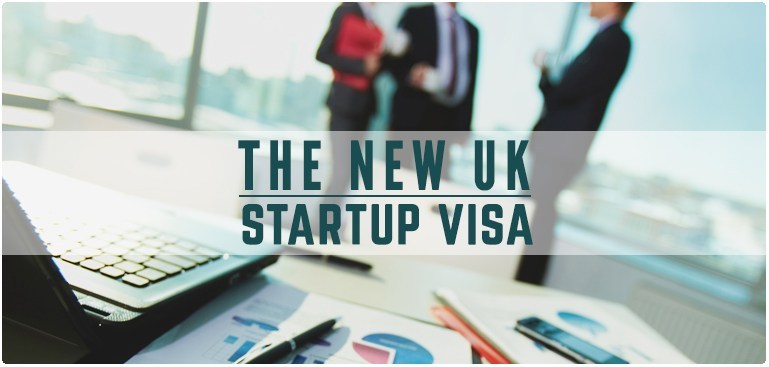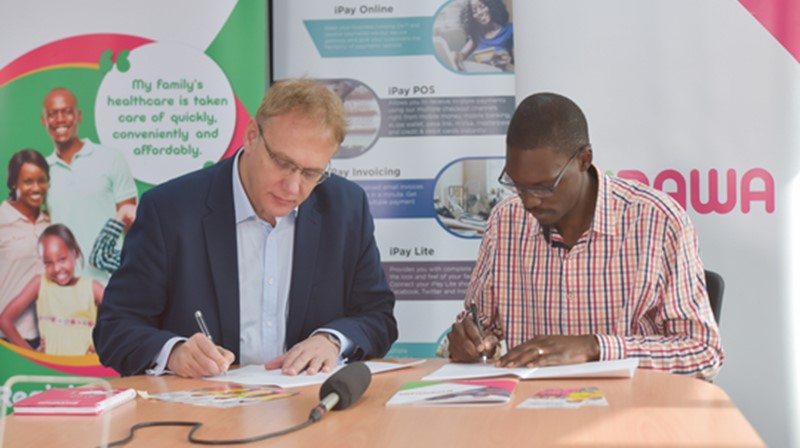Expanding Your Startup Beyond Africa: Taking Advantage of The New UK Startup Visa Policy
The United Kingdom has expanded its visa portfolio to accommodate startup owners desiring to set up a business in the UK. The new visa regime which kicked off from March 29, 2019 is for those migrants who are looking to establish a business in the UK for the first time.
All the start-up applicant needs to have is an innovative, viable and scalable business idea, duly supported by an endorsing body. Once granted, the start-up migrant can stay in the UK for a maximum duration of 2 years.

The only downside to this is that at the end of the 2-year period (and additional extension period of 2 years), the startup immigrant cannot apply for settlement in the UK but can switch over to the Innovator Visa. The Innovator Visa will enable Innovators to stay for another 3 years, and is extendable for another 3 years, at the end of which the Innovators may apply to settle permanently in the UK.
Applicants For Startup Visa Do Not Need To Be Graduates or Have Their Startups Already Funded
This is unlike the former Tier 1 Graduate Entrepreneur visa. An applicant for a start-up visa does not need to be a graduate or secure any initial funding. All that is required is that:
- The applicant has a genuine, original business plan that meets new or existing market needs and/or creates a competitive advantage (Innovation criteria);
- The applicant has, or is actively developing the necessary skills, knowledge, experience and market awareness to successfully run the business.(Viability criteria);
- And that there is evidence of structured planning and of potential for job creation and growth into national markets.( Scalability criteria);
- For a successful start-up visa application, the applicant needs to satisfy that he/she genuinely intends to undertake and is capable of undertaking, any work or business activity in the UK stated in the application;
- Moreover, the applicant must show that he/she does not intend to work in the UK in breach of the conditions of stay in the UK for a start-up migrant.
Application For The UK Startup Visa Can Be Done Both From Inside and Outside The UK
Effective from March 29, 2019, the UK visa fee for a start-up visa entry clearance and leave to remain applications will be £363 and £493, respectively. Again, the applicant may also take advantage of the Council of Europe Social Charter (CESC) discount of £55.
However, the applicant must maintain at least £945 in his account . The funds must have been held in the account for a consecutive 90 days, ending no earlier than 31 days before the date of application. The end date of the 90-day period will be taken as the date of the closing balance on the most recent document provided.
Where documents from two or more accounts are submitted, this will be the end date for the account that most favours the applicant.
If the main applicant and his/her partner or children are applying at the same time, then there must be enough maintenance funds in total, as required for all the applications, otherwise, all the applications will be refused.
Conditions for Grant of Entry and Leave to Remain
Once the startup visa has been granted, an applicant can get up to 2 years visa subject to all of the following conditions:
- no employment as a doctor or dentist in training
- no employment as a professional sportsperson (including as a sports coach)
- registration with the police, if this is required by Part 10 of the Immigration Rules
- no recourse to public funds
- a migrant can study in the UK, subject to the condition set out in Part 15 of the Immigration Rules
- Entry clearance or leave to remain may be curtailed as set out in paragraph 323 in Part 9 of the Immigration Rules.
- entry clearance or leave to remain in the start-up category may be curtailed if an endorsing body withdraws its endorsement of a migrant or loses its status as an endorsing body for the start-up category.
Minimum Age to Apply for The Startup Visa
A start-up visa entry clearance or leave to remain applicant needs to be at least 18 years of age.
There are Twelve Requirements To Meet In order To Be Granted The Visa
To qualify for the start-up visa UK an applicant needs to meet the general and specific requirements under Part W3 and W5 of Appendix W, Immigration Rules, respectively.
If an applicant meets the requirements, then the applicant gets the start-up visa for up to 2 years.
However, if an applicant fails to meet the general and specific requirements, then the start-up visa application is refused.
Checklist of UK Startup Visa General and Specific Requirements
- Evidence provided with applications
- Minute age of the applicant
- Immigration status in the UK
- Restrictions for Tier 4 (General) Students applying in the UK
- Breach of immigration laws
- General grounds for refusal
- Credibility assessment
- English language
- Maintenance funds
Applicants Must Have Secured Endorsement From Endorsing Bodies
A start-up visa applicant for entry clearance or leave to remain application needs to have an endorsement by an endorsing body listed on the gov.uk website.
Moreover, an applicant needs to provide an endorsement letter of the endorsing body.
The endorsement letter needs to confirm that the applicant’s business venture meets the innovation, viability and scalability criteria. The endorsement letter also needs to state that the endorsing body is reasonably satisfied that the applicant will spend the majority of his/her working time in the UK on developing business ventures.
English language Requirement For The UK Startup Visa
The start-up visa applicant is required to have a CEFR B2 level of English language ability. To this effect, the applicant needs to provide one of the following evidence to prove the English language requirement:
- A national of a majority English speaking country
- A degree taught in English — applicant needs to provide UK NARIC certificate confirming the qualification meets or exceeds the recognised standard of a Bachelor’s degree in the UK
- Applicant passing a Secure English Language Test
- The applicant met the requirement in a previous successful application for:
- Start-up, Innovator, Tier 1 (General), Tier 1 (Post-Study Work), Tier 2 (Minister of Religion)
- Tier 1 (Entrepreneur) under the rules in place before 13 December 2012
- Tier 4 (General), supported by a Confirmation of Acceptance for Studies (CAS) assigned on or after 21 April 2011
Requirements for Start-up Visa UK Endorsing Bodies
To qualify as an endorsing body for the start-up visa, an organisation needs to meet all of the following requirements:
- The organisation should either be a UK higher education institution or have a proven track record of supporting UK entrepreneurs
- Ability to competently assess applicants’ business ventures against the endorsement criteria
- The endorsing body to stay in contact with applicants at 6, 12 and 24 months checkpoints. And also update the Home Office on an applicant’s progress. If necessary, then even withdraws the endorsement.
- No past or present involvement or connection with the abuse of the immigration system
The Bottom Line
As the UK gears up for Brexit, the new startup visa policy is one way of opening up its economy. Only the first, risk-taking startup owners may be able to take up the challenge and expand their businesses beyond their current borders, before the system becomes congested and the country considers the review of the visa policy.
Charles Rapulu Udoh

Charles Rapulu Udoh, a Lagos-based Lawyer with special focus on Business Law, Intellectual Property Rights, Entertainment and Technology Law. He is also an award-winning writer. Working for notable organisations so far has exposed him to some of industry best practices in business, finance strategies, law, dispute resolution and data analytics both in Nigeria and across the world.










